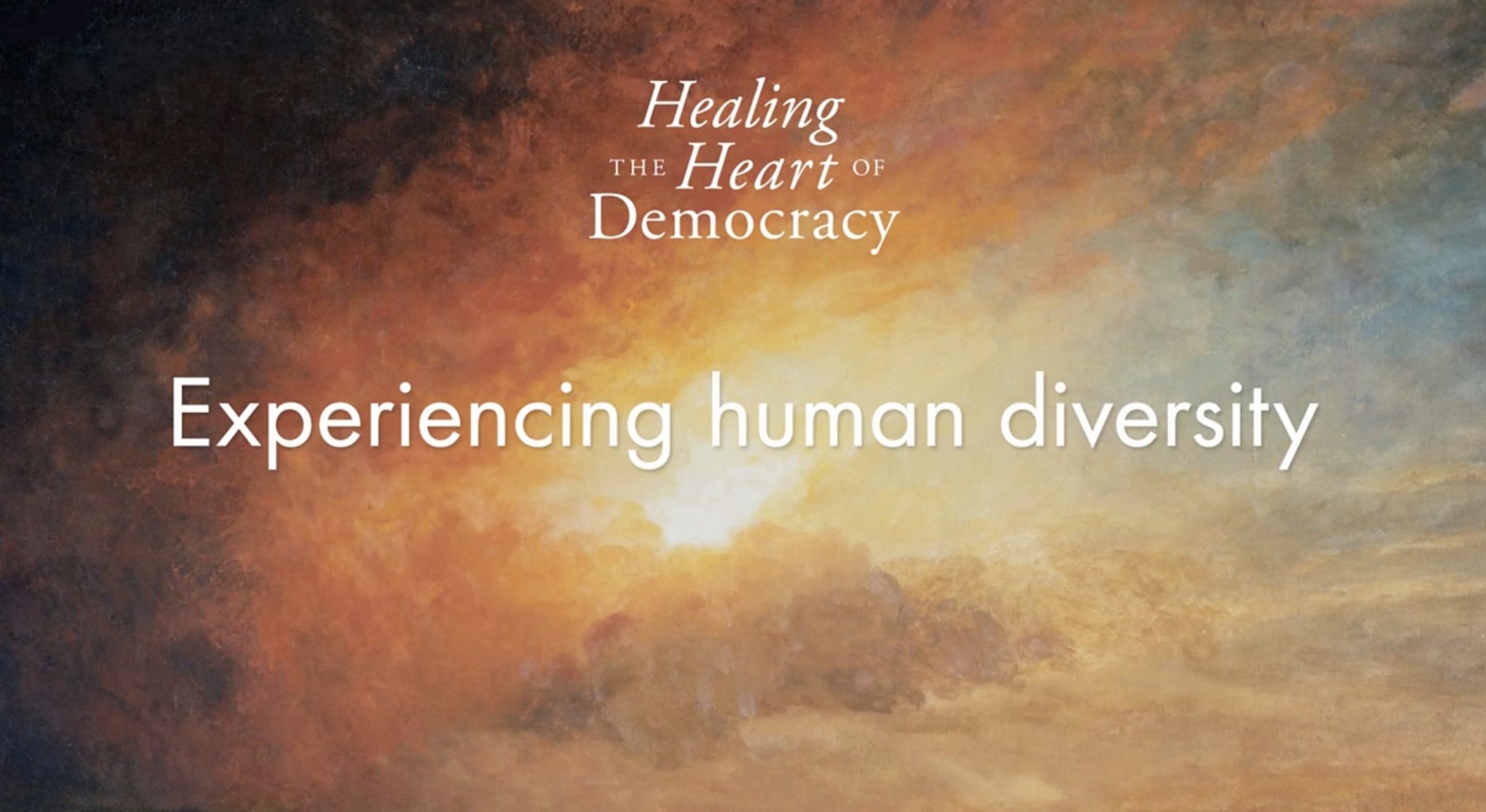From the Healing the Heart of Democracy Discussion Guide // What is your personal relationship to America’s diversity? Do you find it promising, problematic, or both? Do you have a story that illustrates your response to that question? As you think about “public life”— all those settings in which strangers have a chance to mingle freely—are there particular settings that you especially appreciate and enjoy? Can you imagine ways to increase your participation in public life, ways that might allow you to interact with “the other” more frequently and fruitfully?

This video is a part of the Healing the Heart of Democracy Discussion Guide and can be found with more videos and resources in our “Healing the Heart of Democracy Hub.” You can explore the hub, download the guide, and find all of the videos along with additional resources here.
———
As long as we equate the stranger with the enemy, there can be no civil society, let alone a democracy where much depends on holding the tension of our differences without fearing or demonizing the other. . . . Public life happens in all the places and on all the occasions where strangers can freely mingle face-to-face, where our relations with each other have a chance to become “more pleas- ant, more strong, and more durable,” thus enhancing “the bond of social and political union among us.” (96–97)
In nearly every traditional setting of public life, our daily opportunities for face-to-face encounters with strangers are contracting, not expanding . . . we are an increasingly private and therefore deprived people, deprived of meaningful opportunities to develop democratic habits of the heart . . . we must reclaim our public life before we sink any further into privatism at the expense of democracy and of the privacy we cherish, a privacy that requires public vigilance if it is to be preserved. . . . One key to renewing our public life is to reclaim the hospitable physical space it requires. (104–108)
Q. What is your personal relationship to America’s diversity? Do you find it promising, problematic, or both? Do you have a story that illustrates your response to that question? As you think about “public life”— all those settings in which strangers have a chance to mingle freely—are there particular settings that you especially appreciate and enjoy? Can you imagine ways to increase your participation in public life, ways that might allow you to interact with “the other” more frequently and fruitfully?
We offer an abundance of resources to help you learn more about our approach and explore the ways in which our work has meaningfully impacted people’s lives.
There was a problem reporting this post.
Please confirm you want to block this member.
You will no longer be able to:
Please note: This action will also remove this member from your connections and send a report to the site admin. Please allow a few minutes for this process to complete.
